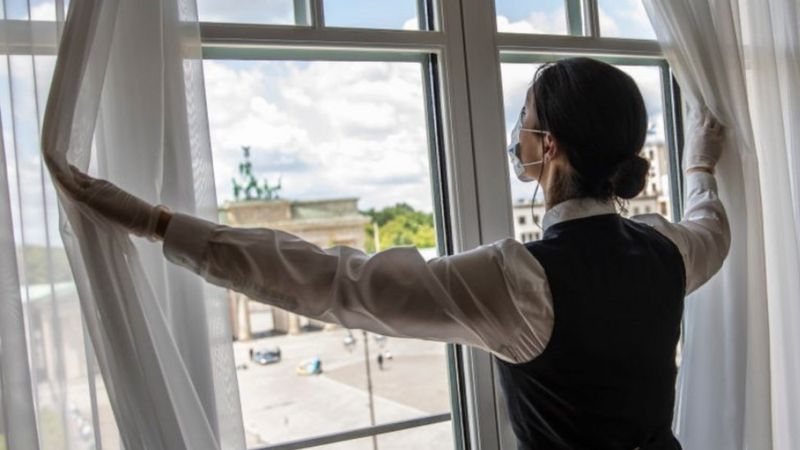Germany improves ventilation to chase away Covid
The German government is investing €500m (£452m; $488m) in improving ventilation systems in public buildings to help stop the spread of coronavirus.
The grants will go to improve the air circulation in public offices, museums, theatres, universities and schools. Private firms are not yet eligible.
Viruses spread on tiny droplets called aerosols, exhaled by infected people - especially when they sneeze or cough.
Studies suggest they can remain in a room's air for at least eight minutes.
Colder weather puts more people at risk because they spend more time indoors.
The main aim is to upgrade existing air conditioning systems, rather than install new ones, which costs more.
Each upgrade is eligible for a maximum of €100,000. Funding is also available for CO2 sensors which indicate when the air in a room is unhealthily stale. The grants will be allocated from Tuesday.
The government also wants schools lacking central air conditioning systems to at least get mobile air purifiers. But much will also depend on how easily rooms can be ventilated simply by opening the windows.
The Bavarian broadcaster BR24 reports that the mobile ventilators, which filter out tiny particles and cost from €2,000 each, can effectively purify a room within minutes.
But German experts say apparatus that relies on UV-light, ionisation or ozone can be ineffective against coronavirus, and in some cases worsen the air quality.





Post a Comment